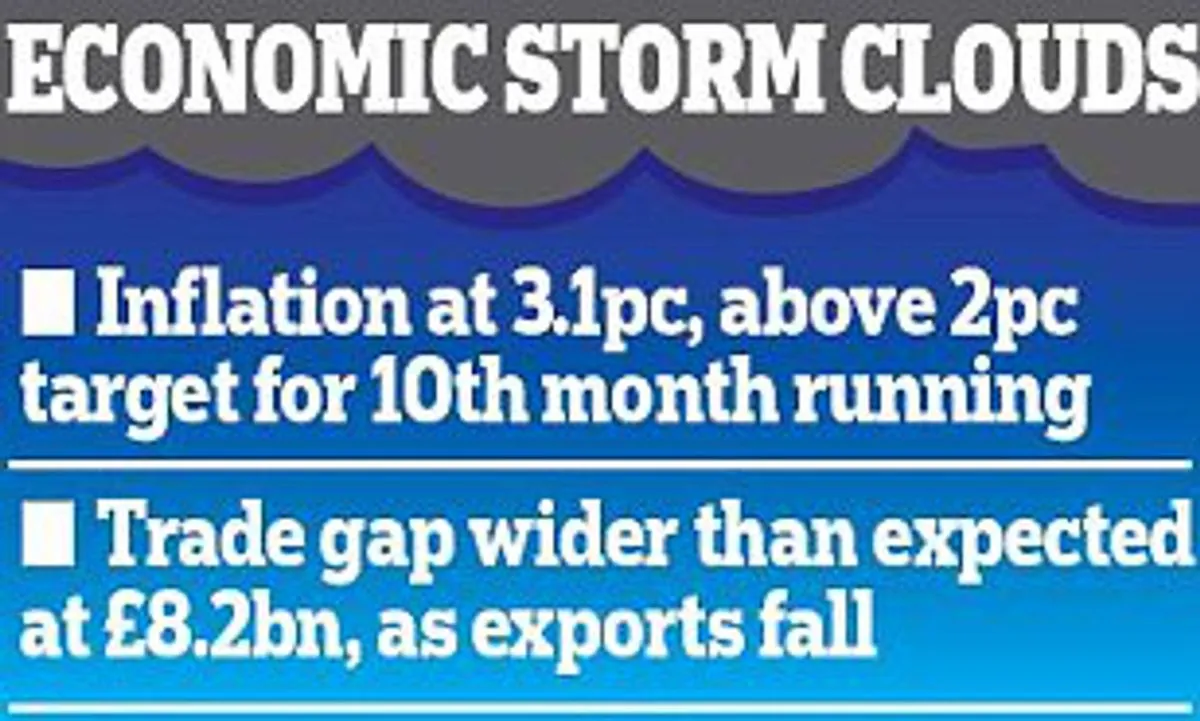UK Economy Faces Headwinds as Debt Surpasses GDP
UK's economic outlook darkens with falling consumer confidence, persistent inflation, and debt exceeding GDP. Labour government's policies criticized as country risks entering prolonged stagnation.

The UK economy is navigating turbulent waters as recent data paints a concerning picture. Consumer confidence has plummeted, inflation remains stubbornly above the Bank of England's 2% target, and economic growth has stalled. These challenges come as the country's debt-to-GDP ratio surpasses the 100% mark, a development that has raised alarm bells among economists and policymakers.
Rachel Reeves, the Chancellor of the Exchequer, and Prime Minister Sir Keir Starmer face mounting criticism for their handling of the economy since taking office in July 2024. Critics argue that their policies have exacerbated an already fragile situation, potentially pushing the UK towards a prolonged period of stagnation.
The latest figures from the Office for National Statistics reveal that GDP growth was flat in August 2024, with little prospect of improvement in the near term. Inflation stood at 2.2% in September, higher than anticipated and above the rates seen in the United States and the eurozone. This has prompted the Bank of England to maintain interest rates at 5%, with further cuts unlikely in the immediate future.

Consumer sentiment, as measured by GfK's Consumer Confidence Barometer, has seen a sharp decline. This downturn in confidence, coupled with waning business optimism, presents significant obstacles to economic recovery. Without a positive outlook driving spending and investment, achieving sustainable growth becomes increasingly challenging.
The government's fiscal position is equally concerning. In August 2024, public borrowing reached £13.4 billion, surpassing both last year's figures and the Office for Budget Responsibility's March forecast. This increase in borrowing comes at a time when the UK's debt-to-GDP ratio has exceeded 100%, a threshold that many economists view as psychologically significant.
While the UK's debt level remains lower than that of the United States (122%) and France (112%), experts warn against complacency. High levels of public debt can have far-reaching consequences, including substantial interest payments that divert resources from essential public services and investments.
"The UK's debt trajectory is unsustainable. Without a comprehensive strategy to boost growth and control spending, we risk falling into an Italian-style trap of perpetual stagnation and rising debt."
The current economic situation calls for a delicate balance between stimulating growth and managing public finances. However, critics argue that the Labour government's approach, which may include tax increases in the upcoming budget, could further dampen economic activity at a critical juncture.
As the UK grapples with these economic challenges, the need for a robust, long-term strategy to promote growth, control debt, and improve public services has never been more apparent. The coming months will be crucial in determining whether the country can avoid a prolonged period of economic underperformance and chart a course towards sustainable prosperity.


































